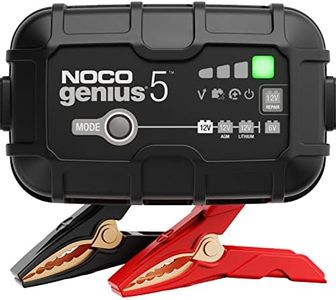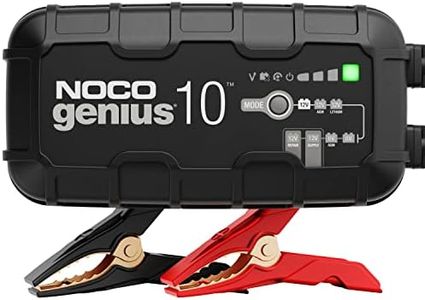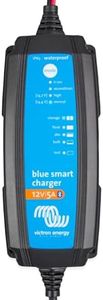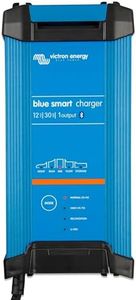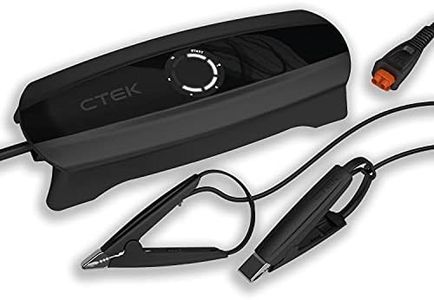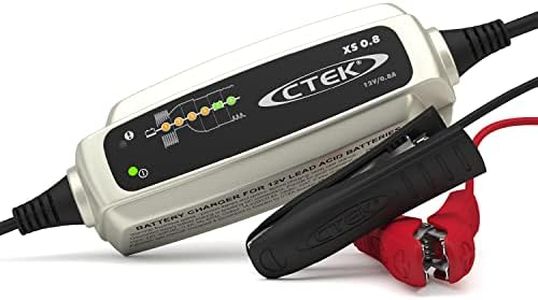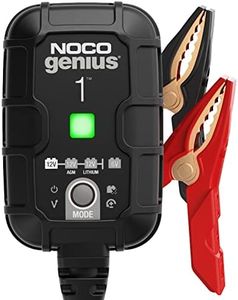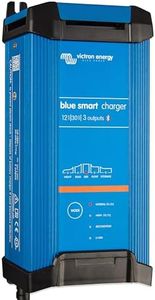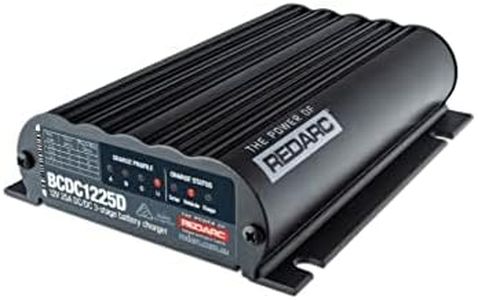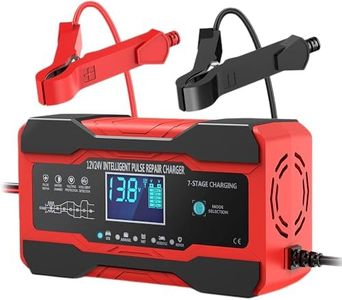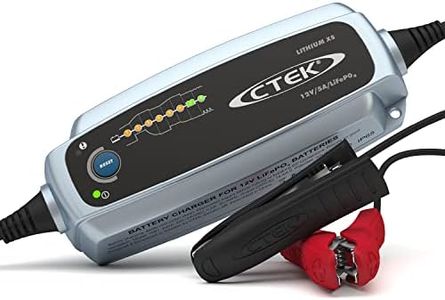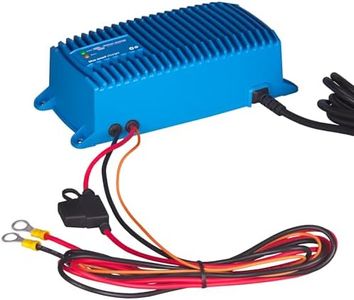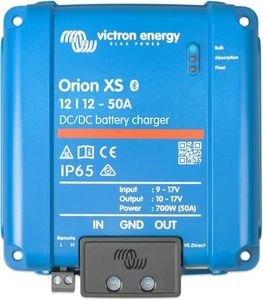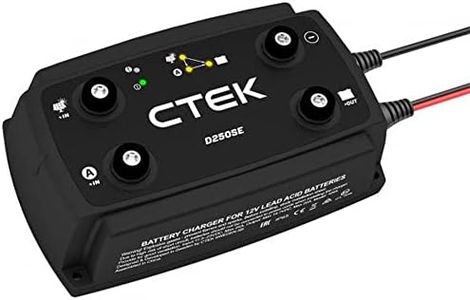We Use CookiesWe use cookies to enhance the security, performance,
functionality and for analytical and promotional activities. By continuing to browse this site you
are agreeing to our privacy policy
10 Best Lithium Battery Chargers
From leading brands and best sellers available on the web.By clicking on a link to a third party's website, log data is shared with that third party.
Buying Guide for the Best Lithium Battery Chargers
When choosing a lithium battery charger, it's important to understand that not all chargers are created equal. Matching your charger correctly to your battery ensures safe, efficient charging, protects battery lifespan, and keeps your devices running smoothly. A good charger for your lithium battery should be safe, reliable, and suited to your specific use, whether that's for tools, e-bikes, battery packs or other applications. Knowing what to look for can help you avoid compatibility issues, slow charging, or even battery damage.Output VoltageOutput voltage is the amount of electrical pressure the charger provides to the battery. This needs to match the voltage rating of your lithium battery — for example, a 12V charger for a 12V battery. Too high or too low voltage can damage the battery or charge it inefficiently. Chargers are often specifically labeled for certain voltages (like 3.7V, 7.4V, 12V, 24V, etc.), so always match your battery's stated voltage. If you use multiple batteries with different voltages, consider a charger with selectable or automatic voltage settings, but for most users, just match the numbers exactly to avoid problems.
Output Current (Charging Amperage)Output current, measured in amps (A or mA), tells you how fast a charger can fill your battery. More amps mean faster charging, but only if your battery is rated for it. Most lithium batteries have a recommended maximum charge current—charging too fast can shorten battery life or be unsafe. Chargers typically range from low-current models (suitable for small batteries or overnight charging) to high-current models (for quick charges in larger batteries). Check your battery's specifications for its optimal charge current, and pick a charger that does not exceed that value. For most users, choosing a charger that charges at around 0.5C to 1C of your battery's capacity is a good balance between speed and longevity.
Supported Battery ChemistryLithium batteries come in different chemistries, like Li-ion, LiPo, or LiFePO4. Each type has unique charging needs—voltage, charge curves, and safety algorithms differ. A charger labeled for only Li-ion shouldn't be used with LiFePO4, for example. Some chargers support multiple chemistries (with switchable modes), while others are dedicated to one. Always confirm your charger is compatible with your battery chemistry, and if you use different battery types, look for a multi-chemistry charger with clear mode selection to avoid mistakes.
Safety FeaturesLithium batteries require careful charging to prevent overheating or damage. Key safety features include overcharge protection, temperature monitoring, and automatic shutoff. The best chargers monitor your battery and stop charging when it's full, and some have extra safety certifications or indicators to alert you to problems. If you charge batteries unattended or overnight, robust safety features are crucial—pick a charger with built-in protections to minimize risks.
Number of Charging ChannelsIf you need to charge multiple batteries at once, look at how many channels the charger supports. Single-channel chargers handle one battery at a time, while multi-channel (dual, quad, etc.) can charge several separately and simultaneously. For users managing several batteries, such as for RC models or power tools, multi-channel chargers save time and effort. If you typically only need to charge one battery, a single-channel charger is simpler and often cheaper.
Connector TypeChargers and batteries connect in various ways—barrel plugs, XT60, JST, alligator clips, and more. Make sure the charger's output matches the connector on your battery, or you may need an adapter. Choosing a charger that uses the same connector as your battery avoids compatibility problems and potential hazards. If you use many batteries with different connectors, pick a charger that comes with or accepts various adapters.
Size and PortabilitySome chargers are large desktop units, while others are compact and portable. If you'll be charging batteries at home, size may not matter much, but for travel or fieldwork, a small, lightweight charger is convenient. Consider where and how often you'll use the charger—pick something easy to pack if you're often on the go, or a larger model with more features if it stays in one place.
